Overview of Digital Marketing for Parking Businesses
In today’s fast-paced digital age, parking businesses must embrace online strategies to stand out. Traditional methods, while still relevant, often fall short in a market where convenience is king. I’ve seen firsthand how effective digital marketing for parking can transform a business.
- Search Engine Optimization (SEO): Ensure your parking business is easily found online. Parking SEO focuses on keywords that your potential customers are using.
- Social Media Engagement: Building a presence on platforms like Facebook or Instagram can help you connect with customers directly.
- Paid Campaigns: Parking paid campaigns, if done correctly, target specific demographics eager to find spots in busy areas.
Importance of Having a Strong Marketing Team
A robust marketing team is essential for navigating the complexities of online marketing for parking. They bring a wealth of expertise and creativity to the table. For example, in my previous project, a well-coordinated team turned a struggling parking lot into a bustling hub by implementing thoughtful social media campaigns and targeted ads.
- Diverse Skill Sets: Marketing requires specialists in SEO, content creation, and analytics to cover all bases.
- Collaboration: A strong team fosters collaboration, ensuring all strategies align towards common goals.
Having the right people can make all the difference!
Understanding Your Business Needs
Assessing Your Marketing Goals
Once you’ve established a solid marketing team, it’s vital to assess your specific marketing goals. Identifying what you aim to achieve guides every decision you make moving forward. Whether it’s increasing brand awareness, boosting sales, or enhancing customer engagement, clarity is key.
Here’s how to kickstart this process:
- Set SMART Goals: Specific, Measurable, Achievable, Relevant, Time-bound goals that provide clear direction.
- Evaluate Current Performance: Look at past campaigns to determine what worked and what didn’t.
I remember when I first set out to enhance our online presence; the team and I sat down together to clarify our goals, which helped us focus our efforts.
Identifying Target Audience and Market Trends
Understanding who your customers are and staying ahead of market trends can significantly impact your success.
- Create Audience Profiles: Dive deep into demographics, preferences, and behaviors.
- Analyze Market Trends: Research trends in the parking industry, such as the rise in mobile app use for finding parking.
Along the way, I learned that when we tailored our messaging to meet the needs of our audience, we witnessed an impressive uptick in engagement.
Key Factors in Selecting a Digital Marketing Team
Expertise and Experience in Parking Industry

Having a dedicated digital marketing team with expertise specifically in the parking industry can elevate your brand’s visibility. I’ve experienced firsthand the difference that knowledge brings. A knowledgeable team understands the nuances of the sector, such as peak times, consumer behavior, and industry challenges.
Marketing a parking garage isn’t the same as marketing a hair salon or SaaS app. Your team needs to understand:
- Dynamic pricing during event hours
- Parking lot zoning regulations
- Transit-oriented development trends
- The importance of nearby landmarks like stadiums, hospitals, or universities
According to Parking Industry Insights, proximity-based advertising and data-backed occupancy forecasting are crucial for garages operating in dense urban environments.
Understanding of Local SEO and Geotargeting
Local SEO and geotargeting are critical components in today’s digital landscape. If your marketing team doesn’t master these techniques, you may miss out on potential customers right in your vicinity.
- Local Keyword Strategy: Utilizing local keywords in content and web pages helps improve search rankings.
- Geotargeted Ads: Specific, targeted ads can place your services in front of customers actively searching for parking near them.
Having worked with teams who excel in these areas, I’ve witnessed higher foot traffic and online engagement because they reach the right audience effectively.
Avoid agencies that pitch “more traffic” or “quick results” without first understanding your business model. A solid digital marketing plan should begin with your revenue goals, occupancy rates, and neighborhood dynamics.
The American Marketing Association (AMA) emphasizes aligning marketing decisions with customer value, market fit, and strategic objectives—not just channel execution.
Track Record of Successful Campaigns
Lastly, a track record of successful campaigns should never be overlooked. Look for case studies or testimonials that highlight real results. They have to have experience in marketing mult-channels, like the following:
- Local SEO (e.g., ranking for “parking near [landmark]”)
- Paid search for time-sensitive queries
- Social media ads targeting concertgoers or commuters
- Programmatic ads during peak seasons
Precise ParkLink notes that marketing must adapt to parking behavior shifts—especially as cities adopt more curb management and digital permit systems.
Communication and Collaboration
Effective Communication Channels
Establishing effective communication channels is crucial for a successful digital marketing strategy. I’ve always believed that seamless communication can make or break a project. It’s essential to determine how your team will interact and share ideas regularly.
- Tools and Platforms: Utilize tools such as Slack for real-time messaging, Trello for task management, and Zoom for virtual meetings.
- Regular Updates: Schedule weekly check-ins or monthly strategy reviews to ensure everyone is aligned and aware of progress.
One experience I recall involved a team that used varied communication methods, leading to confusion and misalignment. Addressing these gaps led us to adopt standardized channels that saved time and reduced misunderstandings.
Collaborative Teamwork and Reporting
Collaboration is the lifeblood of any successful marketing effort. It’s about leveraging each person’s strengths to achieve common goals.
Ask to see sample reports. Do they show actual ROI, like cost per acquisition or lifetime value? Are conversions clearly tied to ad spend? Avoid “vanity metrics” like clicks or impressions.
- Shared Goals: Encouraging a unified vision among team members fosters accountability.
- Transparent Reporting: Utilize dashboards to display campaign metrics, allowing each member to see real-time progress.
Agencies that leverage tools like OWOX BI can build automated pipelines that tie marketing dollars directly to garage reservations or customer actions.
During a campaign aimed at boosting awareness for a new parking app, the collaborative efforts among team members resulted in innovative ideas and strategic pivots that led to outstanding results. Emphasizing teamwork and clear reporting helps in maintaining focus and momentum!
Budget Considerations and ROI Analysis
Cost of Services vs. Expected ROI

Once your digital marketing strategy is defined, it’s time to tackle budget considerations. Balancing the cost of services with expected ROI will ultimately guide your decisions. I’ve observed how important it is to set realistic budget expectations based on actual potential returns.
- Breakdown of Costs: Understand what you’re paying for—advertising, SEO, content creation, and analytics.
- Set ROI Goals: Aim for a return that justifies the investment, typically a multiple of the initial spend.
For instance, in a campaign I managed, careful budgeting and return tracking led us to see a 300% return on our social media advertising – a clear sign that our investment was worth it.
Monitoring and Measuring Marketing Performance
Monitoring your marketing performance is just as vital. It’s not enough to spend wisely; you must also track how effectively your dollars are being used.
- Key Performance Indicators (KPIs): Identify metrics like conversion rates, customer acquisition costs, and overall engagement.
- Regular Reporting: Frequent assessments allow you to pivot quickly if something isn’t working.
In my experience, implementing these practices ensured no dollar was wasted, resulting in a marketing strategy that’s an efficient driver for our parking business. A comprehensive approach to both budget and performance measurement pays off in a big way!
Understanding Your Next Steps
Recap of the 5 Key Factors
The digital marketing agency you choose can make or break your parking business’s visibility, revenue, and long-term growth. Whether you’re trying to drive daily parking reservations or fill commercial leases in a mixed-use garage, the wrong team can waste ad spend, misread market signals, or worse—drive zero ROI.
Here are five key things to consider when evaluating a digital marketing partner that truly understands the parking industry.
- Expertise in the Parking Industry: Seek a team with deep knowledge of your field.
- Local SEO and Geotargeting: These strategies help you attract customers in your immediate vicinity.
- A Proven Track Record: Look for teams that can demonstrate past successes through case studies and testimonials.
- Communication and Collaboration: Establish effective channels and foster teamwork for streamlined operations.
- Budgeting and ROI Analysis: Balance spending with desired returns and continuously monitor performance.
In my experience, focusing on these areas ensures a comprehensive approach to marketing.
Final Tips for Maximizing ROI in Digital Marketing
To truly maximize ROI, consider these final tips:
- Test and Iterate: Use A/B testing to refine messaging and campaigns for better results.
- Leverage Analytics: Regularly review performance data to identify what works and pivot promptly.
- Stay Updated: Digital trends evolve rapidly; staying informed will keep your strategies relevant.
Your business needs to flex with seasons, local events, and changing traffic. A static 12-month marketing plan won’t cut it. Look for a team that can reallocate spend quickly and pivot messaging.
The Business Model Canvas reinforces the importance of agility—continuous iteration and validation based on changing customer behaviors and value propositions.
By implementing these strategies, you position your parking business for sustained success in a competitive market. Let’s hit the ground running!
FAQs
Why does industry experience matter in a digital marketing partner?
A partner with parking industry experience understands zoning, event-driven demand, and local SEO nuances that affect garage revenue.
What should I look for in marketing strategy alignment?
Look for an agency that starts with your business goals—like improving occupancy or reservations—rather than just offering standard services.
Do parking businesses need multi-channel marketing?
Yes. Combining SEO, paid search, event-targeted ads, and local directories maximizes reach and adjusts to user behavior across channels.
How should ROI be reported by marketing teams?
Effective agencies report on cost-per-reservation, call tracking, and overall impact on occupancy—not just traffic or impressions.
Why is agility important in parking lot marketing?
Garage usage shifts based on seasons, events, and transit changes. Agile teams can adjust campaigns quickly to match demand.
Sources:
- Parking Industry Insights – Why Digital Marketing is a Necessity for Your Parking Facility
- American Marketing Association – What is SEO Marketing? [A Comprehensive Overview]
- Precise ParkLink– Why Social Media Marketing is Essential for Parking Operations
- Canvas Business Model – What are the Customer Demographics and Target Market of Parkhub?
- Parking Industry Insights – Ultimate Guide: How to Maximize Your Parking Revenue with Digital Marketing
- OWOX – Achieving Success with SMART Marketing Goals
From SEO to ads to Google Maps visibility — we handle everything. Let’s build your digital presence so drivers choose you first. Reach out today.

